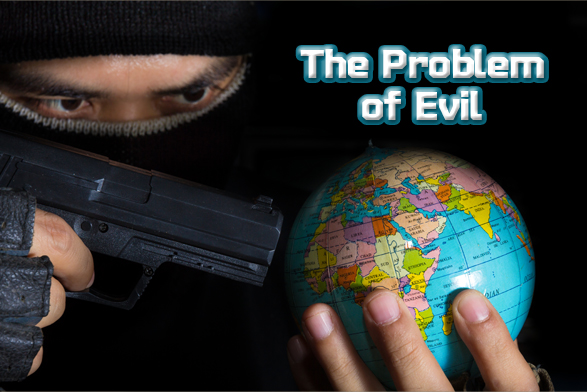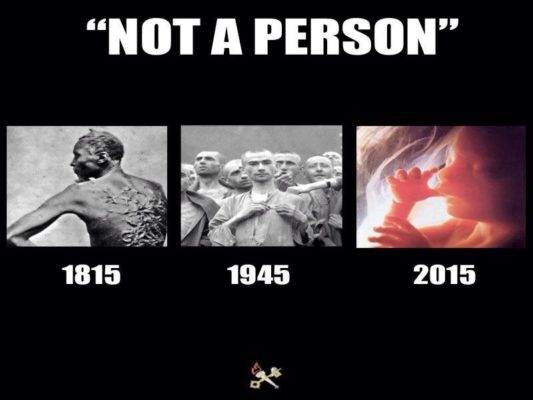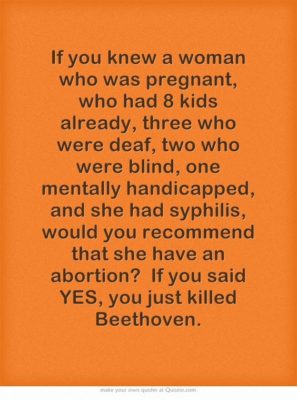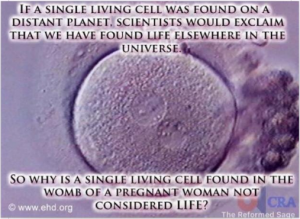Abortion
I know this is a sensitive subject but ignoring it won’t make it go away. An important thing to keep in mind is that abortion is not the unforgivable sin. The unforgivable sin is not accepting Jesus as your Savior. All other sins can be forgiven. If you’re reading this and haven’t asked Jesus to forgive you of this sin, please ask Him to forgive you right now. God’s forgiveness can set you free.
The abortion debate comes down to 4 positions:
1) the fetus is NOT a human being yet.
2) the fetus is a potential human being.
3) the fetus is a human being.
4) the fetus does not have legal rights
Let’s look at these viewpoints one-by-one;
The biblical argument;
1) the fetus is not fully human yet. Genesis 2:7 says man may only become human when he breathes his first breath. Other scriptures relating breath to life are Job 34:14-15.
Response…breath is NOT the beginning of human life. The bible speaks of human beings continued existence after we stop breathing…2nd Corinthians 5:6-8 and Revelation 6:9. The bible speaks of human life existing long before we breath. David speaks of life existing before breathing in Psalm 51:5 and Matthew 1:20.
Other arguments supporting the fetus as sub-human are;
– Physical dependence…the baby is an extension of the mother’s body and she has control over her body.
Response…science tells us that at conception, a new person is created with new DNA that is different from either parent. This newly created person is NOT just a blob of tissue. It is a living human being. The only difference between it now and at birth is time and place of residence.
- Self-consciousness…since an unborn baby is not self-conscious, this makes the baby sub-human.
Response…self-consciousness is not necessary to being considered a human. When you’re asleep, you’re not conscious. Children are not self-conscious until they’re about 1-2 years old. - Abuse and neglect…unwanted babies stand a greater chance of being abused and neglected.
Response…abortion doesn’t stop abuse and neglect. Research reveals that the vast majority of battered children were wanted by their parents. Instead, abortion is the ultimate child abuse by a very cruel, violent death.
- Deformities…abortion based on pre-natal tests eliminates the burden of caring for a deformed baby.
Response…people with deformities are no less human than people without them. Doctors cannot always predict if a child will be deformed or not. Many deformed babies live to grow into mature adults who cherish their lives. There is not a single organization of parents of deformed children who favor abortion. - Illegal abortions…they’re dangerous for the mother. Making them legal increases the safety factor. There are thousands of deaths due to illegal abortions.
Response…legalized abortion doesn’t save lives. Before 1973, when abortion was legalized, women were not dying by the thousands from illegal abortions. Dr. Bernard Nathanson, an early leader in the abortion movement, has admitted that abortion supporters made up those statistics. In 1973, the U.S. Bureau of Vital Statistics reported on 45 maternal deaths due to illegal abortions. The saving of 45 lives doesn’t justify killing over 1,000,000 lives per year by legalized abortion. - Rape…it’s immoral to be forced to carry a child to term because a woman was raped. It can psychologically scar a woman for life.
Response…one violent act doesn’t justify another violent act. Aborting an unborn baby conceived by rape is committing an act of violence on an innocent bystander. There is also a years long waiting list for adopting healthy babies. It’s one reason why people started going overseas and spending tens of thousands of dollars to adopt. Abortion doesn’t take away the evil of rape. It just adds another evil to it. - Privacy right of the mother…just like you’d evict an unwanted guest in your house, you’d have an abortion.
Response…privacy rights are not absolute. You do not have the right to privacy to kill another human being. The right to privacy doesn’t give you the right to do something illegal. With the exception of rape, no pregnancy is unwilled. If you consent to intercourse, you should be responsible for the result of what actions you committed.
2) The fetus is a potential human being.
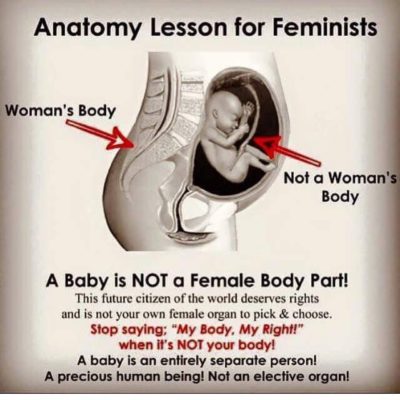
Biblical argument;
– Exodus 21:22-23…these verses imply that only a monetary fine was given for the death of a fetus but the death sentence was given if
the mother died. They say this means that the fetus is not fully human.
Response…Exodus 21 doesn’t teach that a fetus is a potential human being. The Hebrew
word for the mother’s offspring means child. It is the same word used of babies and young
children in Genesis 21:8 & Exodus 2:3. If any harm came to the mother or child, the penalty was the death of the perpetrator. The fetus’
life was considered equal to the mother’s.
– Psalm 139:13, 16…this implies that the fetus is not fully human yet, but is in the process of becoming human (being knit together).
Response…Unformed doesn’t mean unhuman anymore than deformed does. The fetus is
referred to by a personal pronoun (Jeremiah 1:5). The fetus is known by God and is
written down in God’s book in heaven. All this implies relationship. You can only have a
relationship with another human being.
Other arguments for saying the fetus is only a potential human being;
– human personality develops gradually. Before the fetus’ personality develops completely, he is only a potential person.
Response…personality is not personhood. Personality develops over time. Personhood (or our humanness) comes instantly at
conception. While our body changes over time, this doesn’t mean that the person inhabiting that body must also develop gradually
into a person.
- An acorn is not a tree, an egg is not a chicken and a fetus is not a human being.
Response…an acorn is a tiny tree. All the genetic information of an oak tree is inside the acorn. The only difference between an acorn and an oak tree is time and nourishment. A fetus is not a potential human being, it is a human being with great potential.
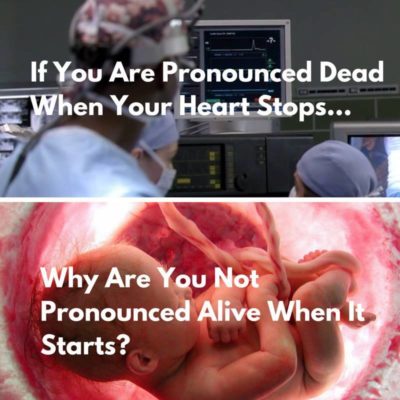
- The legal argument…the 14th amendment to the U.S. Constitution says that “All persons born or naturalized…” The Justices say that the protection of life, liberty, etc. only applies to people who are born. So, the unborn are not entitled to these protections.
Response…a fetus is/should be constitutionally protected. The 14th amendment applies to “persons”. Even corporations have been considered persons under the 14th amendment (Santa Clara county vs Southern Railroad U.S. 394 in 1886). The Supreme
Court incorrectly ruled that fetus’ are not persons in their abortion ruling. But remember, they also ruled that blacks were not citizens (Dred Scott 1857 decision). At the time of our Declaration of Independence in 1776, abortions were forbidden by law and a fetus was considered a “child in the womb”. Only 3 years before the 1973 Roe vs Wade decision, a federal court had ruled that a fetus was a person (Steinburg vs Brown 1970).
3) The fetus is a human being.
Biblical argument;
– the unborn are created by God (Psalm 139:13).
– the life of the unborn is protected by the same punishment for injury or death of an adult.
(Exodus 21:22 & Genesis 9:6).
– unborn babies are called children (Luke 1:41) and even adults (1st Kings 3:17).
– personal pronouns are used to describe unborn children (Jeremiah 1:5 & Matthew 1:20-21).
– the unborn are said to be known intimately and personally by God, just as He would know any other born person (Psalm 139:15-16
and Jeremiah 1:5).
– the unborn are “called by God” before birth (Genesis 25:22-23 Galatians 1:15 Isaiah 49:1)
Other arguments for saying a fetus is a person:
– scientific evidence proves the fetus is fully human. At the very moment a sperm and egg unite, all the genetic information is there and a
new person is created. The fetus’ sex is determined at conception also.
– social evidence for the humanity of the unborn…human embryo’s have human parents. Human life doesn’t stop and start up again.
Abortion has been wrong by many cultures throughout history. From the Code of Hammurabi (18th century B.C.) up thru John Calvin
(16th century A.D.) and to our present age. Before the 1973 decision, all states except New York in 1970, opposed abortion.
4) The fetus does not have legal rights;
A) What does the Declaration of Independence say about life?
“We hold these truths t0 be self-evident, that all men are created equal, that they are endowed by their c reator with certain unalienable
rights, that among these are lifve, liberty and the pursuit of happiness.” The right-to-life is a God-given right. Governments cannot take
it away because they didn’t give it in the first place.
B) Did the founders think this applied to the unborn?
1…Englich common law, from which a lot of our laws came, had laws against abortion.
2…The natural law tradition, which Thomas Jefferson referred to as “the laws of nature” opposed abortion.
3…During the founders time, the unborn were referred to as a “child in the womb”. A child was defined as a “very young person”.
C) Does the right-to-life apply only to those who are born?
1…The 14th amendment applies to those born in the United States. It is only being contrasted to those being born outside th USA.
2…If the 14th amendment applied to those just born in the USA, it would be legal to kill those foreign born. This is obviously absurd.
3…The 14th amendment applies to any person within its jurisdiction, not just to those who have been born.
D)In the 19th century,didn’t they use”quickening”to determine when the baby was alive? The time of “quickening” was used as a time when
the law could know for certain that a human life existed. When they were sure l that life existed, they protected it right away. As time went
on and they knew that life existed before that, they protected it as soon as they knew. Eventually, we know that life starts at conception and this is is where life became protected.
E) But the lives of blacks weren’t protected under the Constitution. Why should the unborn be protected if blacks weren’t? When blacks were murdered, the murderer could be tried in court for murder. The Texas case of Nix versus State (1855) said that “slaves are persons.. regarding crimes…as if committed upon a free person”. The Dred Scott decision only applied in terms of census taking. Foreigners are not citizens but still humans and are protected under US law.
F) What was the status of abortion before the Spurteme Court 1973 Roe versus Wade decision? Until 1970, all US states had laws against abortion except to save the life of the mother. New York state legalized abortion in 1970. In 1973, the Supreme Court legalized abortion on demand.
Other things to consider;
1) What is the difference in the baby one minute before birth and one m inute after birth? Birth doesn’t make any difference to the baby except it changes its place of residence.
2)Using birth to convey legal protection of the baby goes against several centuries of laws.
3) Using birth to convey legal protection on the baby may be the start of a slippery slope. Princeton University professor Peter Singer has said parents should have the legal right to kill their child up to two years of age. Other people have said it should be longer. Why are they saying this? Because they treat humanity as an advanced animal. And because of the supposed economic burden on the parents if the child develops a disease or deformity. Then its only a small step to say the same thing for elderly people. In fact, in the Netherlands, where the killing of elderly people is allowed with their permission, 61% of those deaths are not made by the elderly person but by someone else.
4) We protect some animals better than we protect human babies. Its against the law to destroy an eagle’s egg but not against the law to destroy an unborn baby.
Questions and Answers on Abortion:
1) Is the male sperm or female ovum a human being?
No, each has only 23 chromosomes. A human being has 46 chromosomes. The only thing these can do is die or fertilize/be fertilized.
2) Is any human cell a human being?
No! A human cell is part of a human body. A fertilized cell has its own body. A human cell can only reproduce their own kind of cell, not
a whole human being like a fertilized cell can.
3) Does human life begin at conception (fertilization)? Yes! After conception, there is a no new genetic information added. The DNA
just works out its instructions.
 4) Does birth change the status of a fetus? No! Birth changes the address of the fertilized cell, not its identity.
4) Does birth change the status of a fetus? No! Birth changes the address of the fertilized cell, not its identity.
5) What is the definition of a human being? When a human male sperm fertilizes a human female egg, a new human life is created. The
new human being has 46 distinct human chromosomes.
6) Can unborn babies cry? Yes, at least by their 5th month. When air is present in the womb, mothers and sometimes fathers can hear
the baby cry.
7) Can unborn babies hear their mothers voice? Yes, they can.
8) Do physicians consider unborn babies their patients? Yes! Dr. Albert Liley, the father of modern fetology, said “This is…the same baby
we are caring for before and after birth, who before birth can be ill and need diagnoses and treatment just like any other patient.” Surgery has even been performed on fetuses.
9) Is an unborn baby an extension of their mother’s body? No! It’s attached to the mother’s body but each unborn baby has its own
body, heartbeat, blood type, brain waves, unique genetic code and unique fingerprints. Every mother is female yet half the babies are male.
If a human embryo with black parents was conceived in a test tube and planted into a white woman’s body, the white woman would
give birth to a black baby.
10) Does the unborn baby go thru evolutionary stages, like a fish stage (this is the recapitulation theory of Ernst Haeckel)? No! It begins as
a human and remains a human. Dr. Haeckel faked the test results to convince people that evolution was true. Although it was
recognized immediately as faked by some scientists, it was still listed in biology textbooks until the late 20th century. The late Dr.
Stephen J. Gould has called this evolution’s dirty little secret. It has now been recognized as fake but it took over 100 years to correct
this lie. Watch https://www.youtube.com/watch?v=Qv1TyS09nLM&feature=youtu.be
11) What does the bible say about defending the unborn? God takes up their cause and warns of dire consequences for their oppressors.
Read Deuteronomy 14:29 24:17-21 and 26:12-13 James 1:27 & 1st Timothy 5:3-16.
Abortion has been quite common throughout world history. The reason it has been forbidden (until recently) in westernized countries has been because western values were shaped by Christianity. And Christianity has always seen abortion as sin. One reason why atheists attack Christianity so bitterly is to remove its moral influences. Princeton University professor Peter Singer says we should have the right to terminate our children up to 2 years of age. Atheist Sam Harris says “Many of us consider human fetuses in the 1st trimester to be more or less like rabbits who don’t deserve full status in our moral community.” Christianity has always been against abortion. But Christianity doesn’t just condemn. There is healing available. Jesus longs to heal this wound. Ask Him for forgiveness. He will grant it (Luke 23:40-43). For more help, read https://flfamily.org/get-help/healing-after-abortion. This is a great resource list for both women and men.
There are many pro-life groups. Here are a few:
https://www.nrlc.org/site/
https://www.prolifehealthcare.org/resources/pro-life-organizations/ …this lists many of the pro-life groups.
https://www.birthlinejackson.org/
https://www.care-net.org/what-is-a-pregnancy-center
Book references:
“The Case for Life” by Scott Klusendorf….this is an excellent book and should be on everyone’s bookshelf
“Matters of Life and Death” by Francis Beckwith & Norm Geisler
“Christian Ethics: Options and Issues” by Norm Geisler
“How Christianity Changed the World” by Dr. Alvin Schmidt
For His Kingdom,
Dave Maynard



